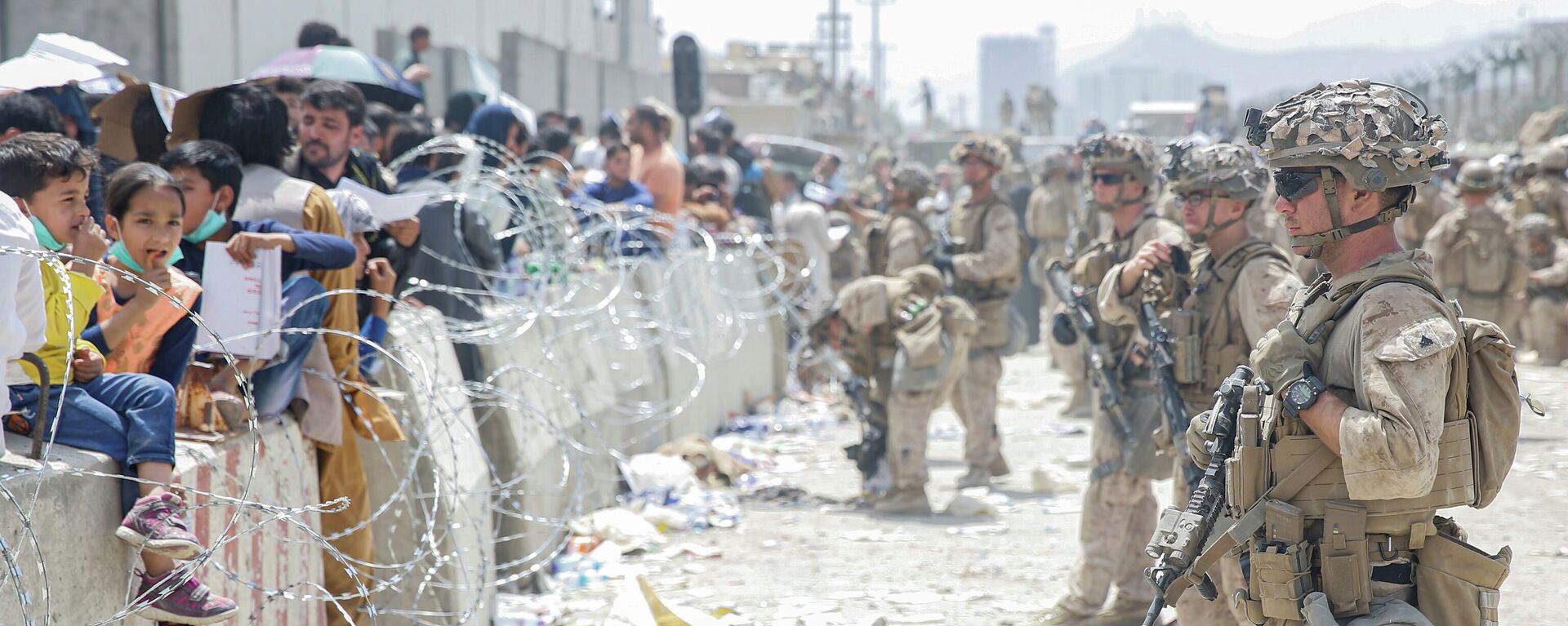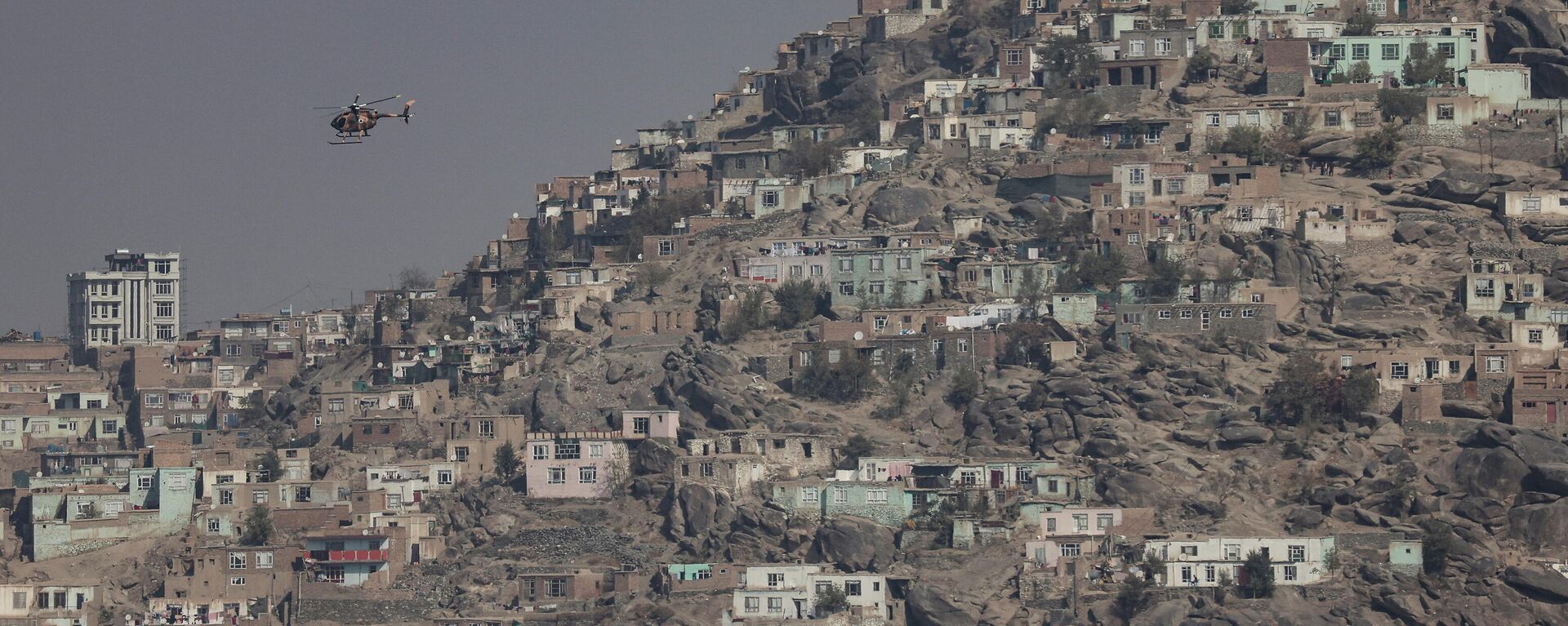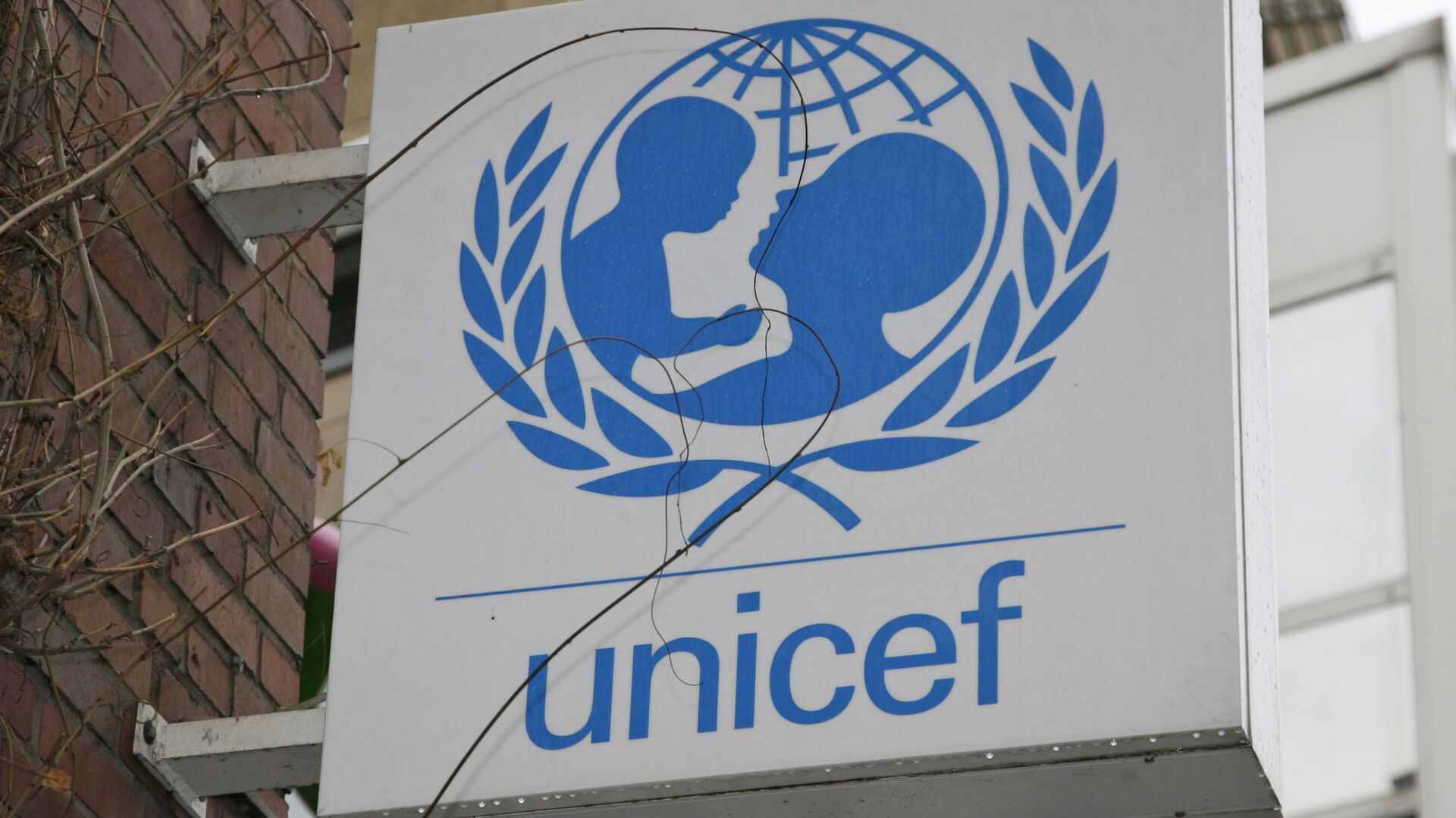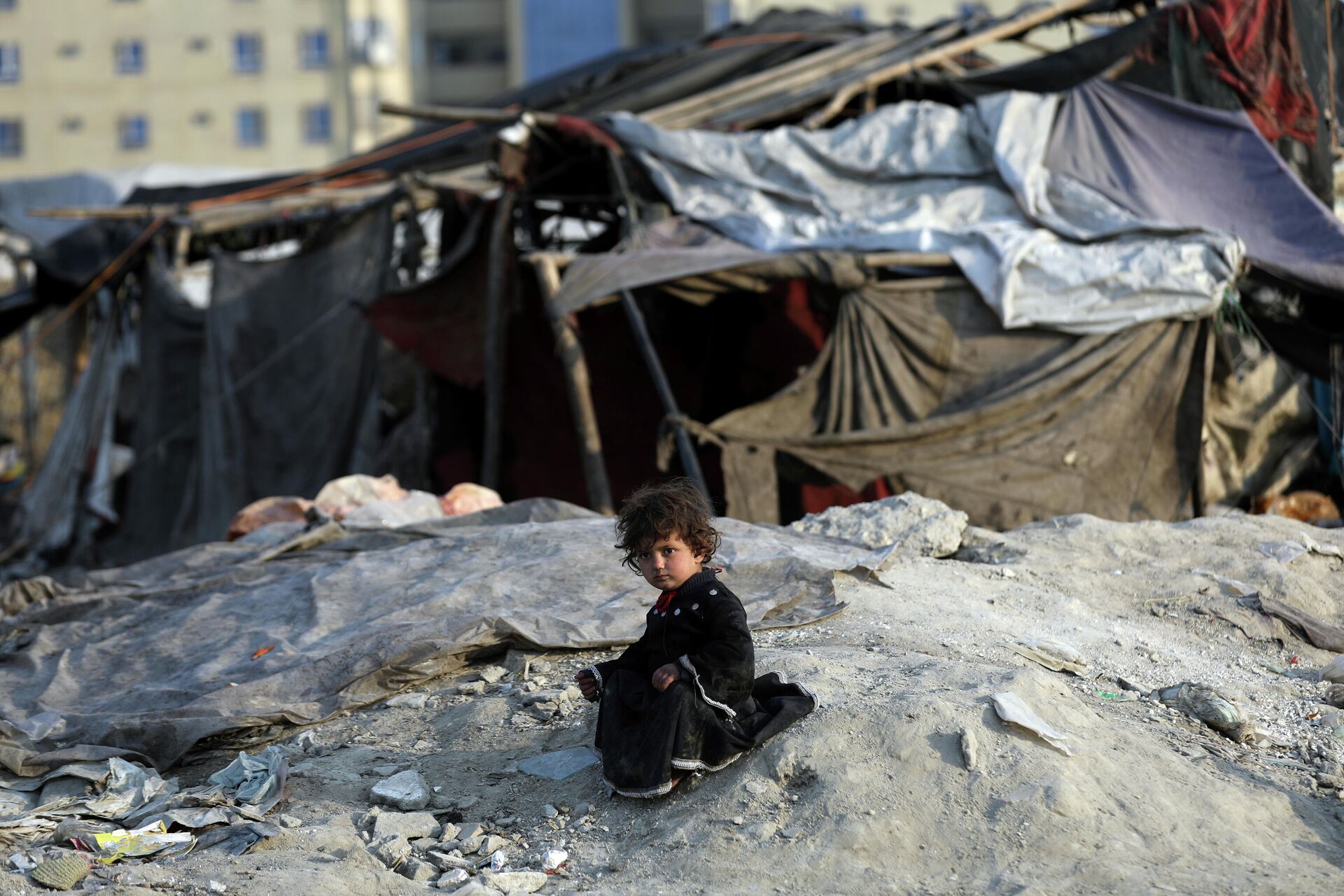https://sputnikglobe.com/20211211/world-bank-donors-endorse-channelling-280m-from-frozen-trust-fund-to-avert-famine-in-afghanistan-1091441052.html
World Bank Donors Endorse Channelling $280m From Frozen Trust Fund to Avert Famine in Afghanistan
World Bank Donors Endorse Channelling $280m From Frozen Trust Fund to Avert Famine in Afghanistan
Sputnik International
The World Bank donors have agreed to transfer $280mln from the frozen Afghanistan Reconstruction Trust Fund (ARTF) to the World Food Program and the United Nations Children's Fund to offer support to Afghanistan.
2021-12-11T14:23+0000
2021-12-11T14:23+0000
2021-12-11T14:23+0000
world bank
unicef
afghanistan
taliban
world food programme (wfp)
https://cdn1.img.sputnikglobe.com/img/107846/71/1078467125_0:219:2863:1829_1920x0_80_0_0_39b0c511cd93de1dd89fb14747c944f8.jpg
The board of international donors of the World Bank have agreed to transfer $280 million from the frozen Afghanistan Reconstruction Trust Fund (ARTF) to the World Food Programme (WFP) and the United Nations Children's Fund (UNICEF) to offer much-needed support to Afghanistan.According to a Friday statement on the World Bank’s website, the funds would be channelled to bolster food security and health programmes in the South Asian country, which is teetering on the brink of a severe economic and humanitarian crisis. The desperate situation has accelerated since August, when the Taliban* Islamic group overran the country in the wake of the pullout of US and NATO forces.After the Taliban, which is on list of internationally sanctioned groups, seized control of Afghanistan, Washington and other foreign donors rushed to withhold – or withdrew – funding that the nation had been relying on throughout the 20 years of war. Furthermore, the administration of US President Joe Biden froze $9.5 billion of assets of the country’s central bank, with the EU following suit by withdrawing $1.4 billion in aid. The International Monetary Fund also froze the Taliban's access to $450 million, according to Amnesty International. The United Nations has been warning that nearly nine million people in Afghanistan are at risk of famine as winter grips the impoverished country.By channelling reconstruction trust fund resources through the WFP and UNICEF, funding of the country’s basic needs could be carried out in a manner that does not necessarily implicate US sanctions against the Taliban.It added that as the agencies in question had presence and logistics on the ground, this could facilitate delivery of services to Afghans in accordance “with their own policies and procedures."The bank said the move would enable UNICEF to “provide 12.5 million people with basic and essential health services and vaccinate 1 million people.” As for the World Food Programme, it could provide 2.7 million people with food assistance.On 1 December, Reuters reported that the World Bank board backed transferring the ARTF funds to the two agencies.The World Bank vowed it would “continue to work with ARTF donors to unlock additional ARTF funds to support the Afghan people."*The Taliban is an organisation under UN sanctions on account of terrorist activities.
https://sputnikglobe.com/20210929/marines-forced-to-clean-up-trash-paint-over-obscene-graffiti-before-leaving-afghanistan---report-1089527740.html
https://sputnikglobe.com/20211124/afghanistan-needs-access-to-global-relief-to-avoid-humanitarian-disaster---rights-group-1090973577.html
afghanistan
Sputnik International
feedback@sputniknews.com
+74956456601
MIA „Rossiya Segodnya“
2021
News
en_EN
Sputnik International
feedback@sputniknews.com
+74956456601
MIA „Rossiya Segodnya“
Sputnik International
feedback@sputniknews.com
+74956456601
MIA „Rossiya Segodnya“
afghanistan world bank unicef wfp taliban
afghanistan world bank unicef wfp taliban
World Bank Donors Endorse Channelling $280m From Frozen Trust Fund to Avert Famine in Afghanistan
Amnesty International, in a press release in late November, urged the international community to ease financial restrictions on Taliban*-ruled Afghanistan which were blocking the provision of vitally needed health care, food, and other essential services.
The board of international donors of the
World Bank have agreed to transfer $280 million from the frozen Afghanistan Reconstruction Trust Fund (ARTF) to the World Food Programme (WFP) and the United Nations Children's Fund (UNICEF) to offer much-needed support to Afghanistan.
According to a Friday
statement on the World Bank’s website, the funds would be channelled to bolster food security and health programmes in the South Asian country, which is teetering on the brink of a severe economic and humanitarian crisis. The desperate situation has accelerated since August, when the Taliban* Islamic group overran the country in the wake of the pullout of US and NATO forces.

29 September 2021, 21:44 GMT
After the Taliban, which is on list of internationally sanctioned groups, seized control of Afghanistan, Washington and other foreign donors rushed to withhold – or withdrew – funding that the nation had been relying on throughout the 20 years of war. Furthermore, the administration of US President Joe Biden froze $9.5 billion of assets of the country’s central bank, with the EU following suit by withdrawing $1.4 billion in aid. The International Monetary Fund also froze the Taliban's access to $450 million, according to Amnesty International.

24 November 2021, 02:00 GMT
The United Nations has been warning that nearly nine million people in Afghanistan are at risk of famine as winter grips the impoverished country.
By channelling reconstruction trust fund resources through the WFP and UNICEF, funding of the country’s basic needs could be carried out in a manner that does not necessarily implicate US sanctions against the Taliban.
“This decision is the first step to repurpose funds in the ARTF portfolio to provide humanitarian assistance to the people of Afghanistan at this critical time,” stated the World Bank.
It added that as the agencies in question had presence and logistics on the ground, this could facilitate delivery of services to Afghans in accordance “with their own policies and procedures."
The bank said the move would enable UNICEF to “provide 12.5 million people with basic and essential health services and vaccinate 1 million people.” As for the World Food Programme, it could provide 2.7 million people with food assistance.
On 1 December, Reuters reported that the World Bank board backed transferring the ARTF funds to the two agencies.
The World Bank vowed it would “continue to work with ARTF donors to unlock additional ARTF funds to support the Afghan people."
*The Taliban is an organisation under UN sanctions on account of terrorist activities.




